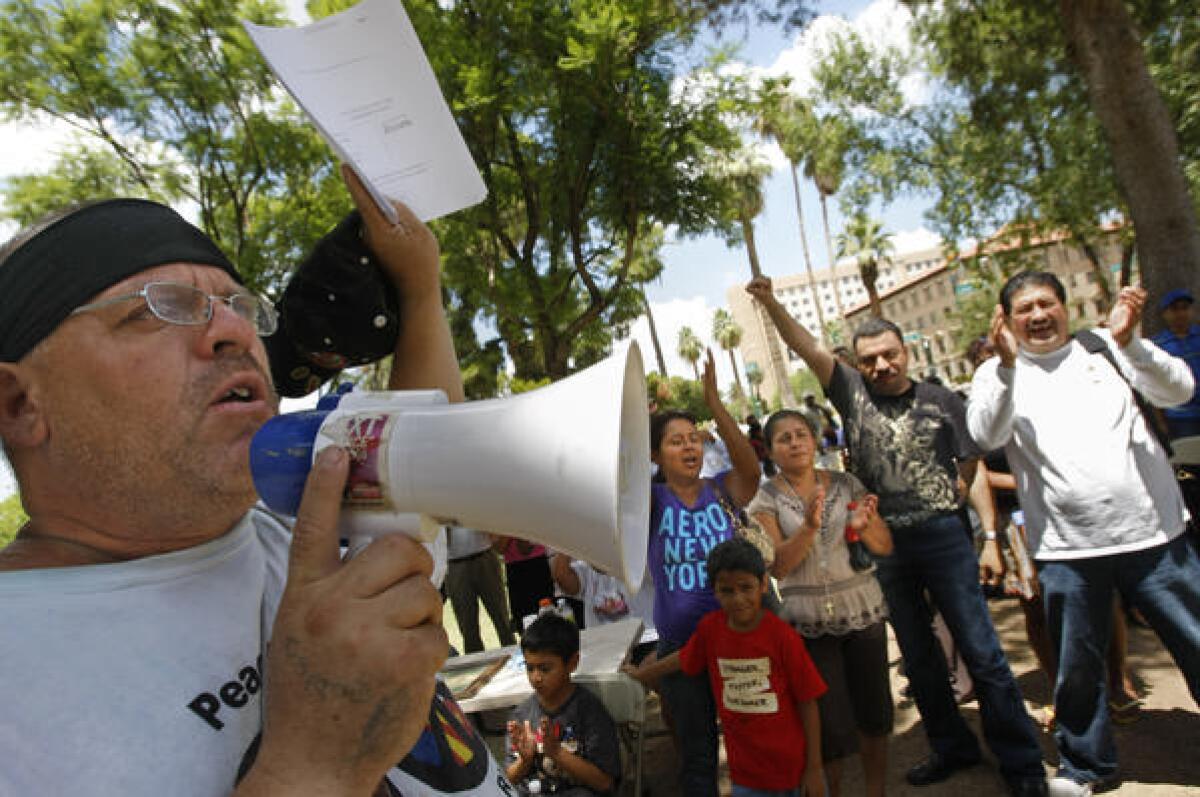Study: Local immigration policing efforts caused few exits from U.S.

- Share via
When local police started quizzing people about their immigration status, some immigrants relocated – but they usually did not leave the United States, a new study finds.
A working paper from the National Bureau of Economic Research found that when state and local officials took on the power to enforce some immigration laws by investigating immigration violations on the street, immigrants were more likely to relocate within the country.
But only in Arizona’s Maricopa County, known for the controversial immigration policies of Sheriff Joe Arpaio, were immigrants more likely to abandon the United States entirely, the study found.
“After the extreme case of Maricopa County is excluded, there is no evidence that local enforcement causes the foreign-born to exit the United States or deters their entry from abroad,” wrote economist Tara Watson of Williams College, who authored the paper.
The findings are likely to add fuel to the debate over whether policing immigration locally will prod immigrants who are in the country illegally to leave.
During the last decade, scores of state and local law enforcement agencies signed agreements allowing them to enforce some federal immigration laws.
Under “task force” agreements, for instance, police could ask people for proof they were in the country legally if they had reasonable cause to suspect violations. Such programs have since been ended under the Obama administration, but the debate over their effectiveness continues as states craft their own immigration laws.
The study concluded that state and local enforcement had little effect on immigrants leaving the country, except in Maricopa County, an area with unusually intense enforcement and a short distance to the border.
However, Watson estimated that such local enforcement made immigrants nearly twice as likely to relocate within the United States. During the peak year for such programs, an additional 15,000 immigrants ages 18 to 49 were prodded to move, her results suggested. Between 2005 and 2010, that added up to 50,000 immigrants relocating – a small change that didn’t drastically affect their overall distribution.
She also found that the push to relocate was strongest for educated immigrants, who might not be the intended targets of the local enforcement efforts, since more educated immigrants are more likely to be in the country legally, she wrote.
The findings were drawn by analyzing data from the American Community Survey conducted by the U.S. Census Bureau. The surveys do not ask whether immigrants are in the country legally, but can be used to track whether immigrants move inside the country or leave it entirely.
ALSO:
With Hawaii vote, same-sex marriage wave continues to grow
Gunman kills 3, then self in rampage tied to New York rock group
Veterans Day: Nation gives thanks with parades, Obama lays wreath
More to Read
Sign up for Essential California
The most important California stories and recommendations in your inbox every morning.
You may occasionally receive promotional content from the Los Angeles Times.











